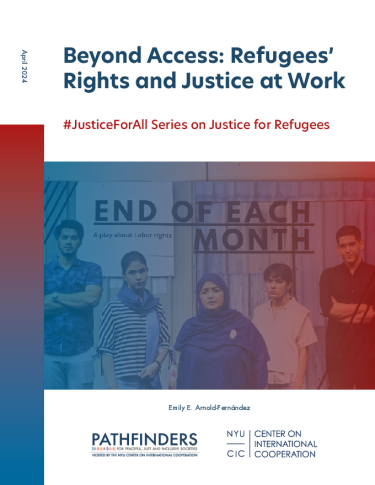Beyond Access: Refugees’ Rights and Justice at Work
By Emily E. Arnold-Fernández
Work plays a central role in the lives of refugees.
When work is just, it offers economic power, personal agency, and often a sense of meaning, purpose, or even identity. The Sustainable Development Goals (SDGs) recognize the importance of justice in relation to work. Goals 8 (decent work and inclusive economic growth) and 10 (reduced inequality) are only possible when work is just.
Too often today, however, refugees have access to work only in conditions of grave injustice. Wage theft, sexual assault, and other workplace violations are common. Restrictions on refugees’ access to authorized work push them into informal, unregulated employment where justice is inaccessible. These problems show us that, to achieve SDGs 8 and 10 for refugees, we must also achieve SDG16.3: Promote the rule of law at the national and international levels and ensure equal access to justice for all.
This paper aims to lay a common foundation for solutions to the justice problems refugees face in the labor market and also supports the thesis that ensuring access to justice in the workplace for refugees can facilitate mutual gains, uphold human rights, and support the achievement of the Sustainable Development Agenda.
Related Resources
